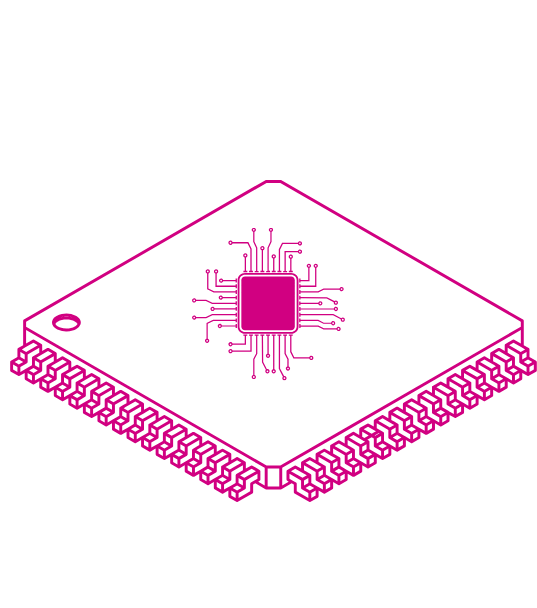SoC DESIGN SERVICES
Transforming Ideas into High-Performance SoC Solutions
Ignitarium specializes in cutting-edge System-on-Chip (SoC) design services tailored to meet the unique needs of clients in the semiconductor industry. Our expert team harnesses deep domain knowledge and innovative methodologies to deliver high-performance, low-power SoC solutions. From concept to silicon realization, we offer comprehensive services including Architecture design, RTL development, Verification, Physical design, and DFT. At Ignitarium, we are committed to pushing the boundaries of VLSI technology, ensuring optimal functionality and efficiency in every SoC design project.
Do it right with Ignitarium
Offerings
- Custom SoC Design and Development: Tailored solutions to meet specific requirements and optimize performance for diverse applications.
- IP Integration and Verification: Seamless integration and thorough verification of intellectual property (IP) blocks to ensure reliability and functionality.
- Power and Performance Optimization: Advanced techniques to enhance power efficiency and maximize performance for energy-sensitive applications.
- Physical Design and Implementation: Expert physical design services, including layout, routing, and timing closure, to achieve optimal silicon implementation.
- Prototyping and Validation: Comprehensive prototyping and validation services to ensure design accuracy and accelerate time-to-market.
- Design for Test (DFT) and Post-Silicon Validation: Comprehensive DFT strategies and post-silicon validation to ensure robust manufacturability, yield, and reliability of the final SoC product.

Ignitarium Advantages

Customized Solutions
Receive tailored SoC designs that meet specific product requirements and performance goals, ensuring optimal functionality and differentiation in the market.
Accelerated Time-to-Market
Benefit from streamlined design processes and expert engineering capabilities that reduce development cycles and speed up product launches.
Cost Efficiency
Achieve cost savings through efficient design practices, integration of multiple functions into a single chip, and reduction of bill-of-materials (BOM) costs.
Enhanced Performance
Leverage advanced design techniques and technologies to maximize power efficiency, processing speed, and overall system performance.
Scalability and Flexibility
Gain scalable and flexible SoC solutions that can be easily adapted or upgraded to meet evolving market demands and future product iterations.
Risk Mitigation
Minimize risks with thorough verification, validation, and testing processes that ensure reliability, functionality, and compliance with industry standards.
Case Studies


SoC Design Services
Lithium Ion Battery Charger Mixed Signal Verification
Learn More
FAQs?

The main difference between ASIC (Application-Specific Integrated Circuit) design services and SoC (System-on-Chip) design services lies in their architectures and scope:
ASIC design services:
Customization: ASICs are tailored for a specific application or task. The architecture is highly customized to meet the precise requirements of the intended function, often involving specialized circuits optimized for performance and efficiency.
Dedication: ASICs are designed for a singular purpose, excluding unnecessary components. This dedication to a specific task result in high performance and energy efficiency but limits the chip’s versatility.
Optimization: ASICs prioritize optimization for the targeted application. The design process involves maximizing performance and minimizing power consumption by eliminating non-essential features.
SoC design services:
Integration: SoCs integrate multiple components and functionalities onto a single chip. This includes processors, memory, input/output interfaces, and potentially programmable components. The architecture is more complex to accommodate diverse functions.
Versatility: SoCs are designed to be versatile and applicable to a range of tasks. They can be used in various applications, from consumer electronics like smartphones to embedded systems and IoT devices.
Complexity: SoCs are inherently more complex due to the integration of diverse components. The architecture must support the coexistence of different functionalities, leading to a more intricate design process.
Flexibility: SoCs offer greater flexibility as they can be reprogrammed or configured for different tasks. This flexibility comes at the cost of potentially higher power consumption and a larger footprint compared to dedicated ASICs.
In summary, ASIC design services involves creating custom chips optimized for specific applications, resulting in high performance and efficiency. On the other hand, SoC design services focuses on integrating multiple functions onto a single chip to achieve versatility across a broader range of applications, making the architecture more complex and flexible. The choice between ASIC and SoC depends on the specific requirements of the intended use case.































